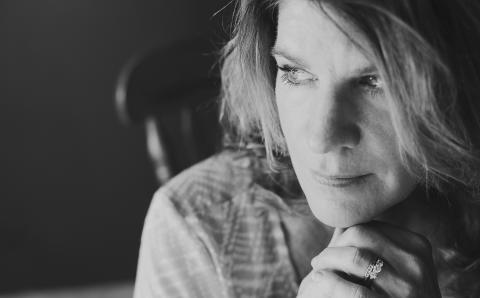Human trafficking, one of the fastest growing criminal industries in the world, has many faces.
It affects men and women, young and old across the world. It is not always easy to identify when human trafficking, which exists on a spectrum, is occuring. Some victims are bought and sold into forced labor or prostitution. Others are coerced into marriage or intimidated into paying unfair debts. Still others sell their bodies because they see no other option to pay for food and shelter.
In all these cases, God’s imagebearers are treated as commodities. Their lives are not the lives they would have chosen for themselves.
Through its ministries and partnerships, the Christian Reformed Church in North America strives to prevent human trafficking and free people from this type of bondage. As a result of these efforts, vulnerable individuals such as Khady, Mary*, and countless others are learning about their true identity in Christ and stepping into God’s purpose for their lives.
Forced Marriage in Senegal
Khady’s family arranged for her to marry her cousin. A smart and capable young girl, Khady had her own dreams for her future—but she was also living in a poor community in Senegal, where girls are often treated as property and forced to marry young.
Human trafficking is of particular concern in impoverished communities, and young people who are undereducated and unemployed are among the most vulnerable. Lured by the promise of jobs and a better life outside their village, they can become ensnared in a life of forced labor or sexual exploitation.
In the case of forced marriage, parents living in poverty are often overwhelmed by the number of children they have to feed and care for. Agreeing to let one of these children get married—often at a very young age and to men much older―is seen as one way to meet the needs of that child while also freeing resources for the rest of the family.
When Khady and her mother learned about World Renew’s Adolescent Health and Rights program, however, Khady’s future changed.
World Renew partners with local Christian organizations to teach communities about the risks young people face. Through these efforts, they build better futures for youth and their families.
When an educator came to Khady’s house to talk about the Adolescent Health and Rights program, Khady’s mother believed it would benefit her daughter and allowed her to join.
The program taught Khady and other young people about HIV and AIDS, sexual abuse, and the danger of early pregnancies. Hearing about these risks, Khady was more determined than ever to build a different future for herself. She shared the consequences of early pregnancy with her family, and they reconsidered the planned marriage to her cousin.
Today Khady has new plans to start her own business by becoming a seamstress. World Renew program educators worked with her to create a strategy for achieving her goals, including attending vocational training to learn how to sew.
Khady also has a passion to help other young girls and boys in her community. “I have shared my knowledge with my friends who are in school,” she said. That is just the start of Khady’s advocacy. Along with her friends from the program, she is planning events in their community to help more people become aware of the risks of early marriage and other types of human trafficking and inviting parents, health workers, religious leaders, and other youth.
By teaching and walking alongside young girls like Khady, World Renew makes it possible for an entire community to combat human trafficking. Together they are bringing God’s kingdom to earth and building better futures for youth and their families.
Trapped in Prostitution and Poverty
Mary was alone in her motel room on East Colfax Avenue in Aurora, Col., one of the poorest neighborhoods of metropolitan Denver. The dingy space is her home for now.
At 52 years old, Mary felt trapped in a cycle of poverty and addiction where she sold her body to anyone willing to buy. Growing up in a broken home, she always wanted more for her own life and family—but her marriage fell apart and she struggled to raise five children by herself. She turned to prostitution because she saw no other solution.
Then one night, Shawn and Diane Sikkema knocked on her door.
“[The motels] are sort of flophouses,” said Shawn, who moved into a motel with his wife to start Jesus on Colfax Ministries in partnership with Resonate Global Mission. “A lot of the motel population [lives with] multigenerational poverty. A lot of mental illness. A lot of very, very lonely people. A lot of drug dealing. And a lot of prostitution.”
Mary felt ashamed of selling her body. The night she met the Sikkemas, she told them, “Every night when I go to bed, I ask God to forgive me for what I had to do that day.”
Yet she could not help but wonder if she was worthy of God’s love and grace—especially when she looked at the broken home she had been born into.
Shawn and Diane showed her she was worthy of love.
The next afternoon, Diane spotted Mary across the street—dressed up and waiting for someone to cut her a deal. Mary had a crockpot of food cooking in her room for friends she had invited over that night, but she was short on her rent. The motel locked her out until she could pay the remaining 35 dollars for another night.
Diane said to her: “You mean, if I had 35 dollars to pay for your motel room, you could just go back to your room and have dinner with your friends?”
The Sikkemas rarely hand out money, but Mary was an exception. Diane got money from the ATM and paid the remaining fee for Mary’s motel room that night.
Shawn notes it was not, by any means, a permanent solution. The 35 dollars did not get Mary off the streets the next night. She might never find another means to pay for rent.
But people like Mary are discovering their identity in Christ through Jesus on Colfax Ministries. As Shawn, Diane, and the rest of their team seek people out and spend time talking with them, they send a powerful message about love.
“Every once in awhile, someone will articulate it,” Shawn said. “They’ll say, ‘I have never in my life known what it meant to be loved unconditionally until you folks came around.’ We see that transformation in them.”
Restoring Survivors
It is often the most vulnerable people in society—such as Khady and Mary—who are at risk for trafficking. Christian Reformed churches in Canada are helping to raise awareness about this issue by telling human trafficking stories and screening the movie Priceless.
Based on true events, Priceless approaches the sex trade from the point of view of James (Joel Smallbone), a man who turns to drinking after the sudden death of his wife and then loses custody of his daughter. In an effort to make some easy cash, he takes a shady deal driving a box truck cross-country—only to discover that he’s delivering two sisters into the hands of a pimp.
Antonia (Bianca A. Santos) and Maria (Amber Midthunder) were promised jobs to help pay off a debt their father owed. Instead, they were sold into the sex trade. When James realizes what he has gotten mixed up in, he strives to right his wrong and free Antonia and Maria from their bondage.
Spoiler alert: he succeeds. But freedom is not the end of the story.
“It takes, on average, seven attempts for an individual to leave the sex trade before they leave for good,” said Jennifer Lucking, a missionary of the Reformed Church in America (RCA) and executive director of Restorations Second Stage Homes, which is partnering with the CRCNA to show this film. “When victims come forward for help, there are few specialized services that can serve the unique needs that survivors face.”
That is where Restorations steps in. An organization of the RCA, Restorations is working to develop safe, stable, and supportive long-term housing for survivors while they recover. In addition to living in a community with other survivors, residents also receive programming and services tailored to their specific needs.
“Without knowledgeable people coming alongside survivors who really understand the unique traumas and experiences faced in the sex trade, survivors feel misunderstood and unsupported,” said Lucking. “We work with survivors to think about, dream, and plan for their future.”
Through partnering with Restorations to show screenings of Priceless, churches are not just raising awareness about freeing men and women from the sex trade. They are joining the effort to provide survivors with support they need to step into a healthy, purposeful life.
Bethel CRC in Waterdown, Ont., showed the film in October 2018. “It is our prayer that we will learn how to make a difference,” said Joanne Adema, a Bethel CRC member who organized the event. “Through the showing of Priceless . . . it’s our prayer that [survivors] are able to break out of this life of bondage and begin a new life of freedom.”
Human trafficking has many faces. Yet God is working through churches and agencies like World Renew, Resonate, and Restorations to prevent bondage and help vulnerable individuals like Khady and Mary discover their freedom and identity in Christ.
*Name changed for privacy.
About the Author
Cassie Westrate, Resonate Global Mission









